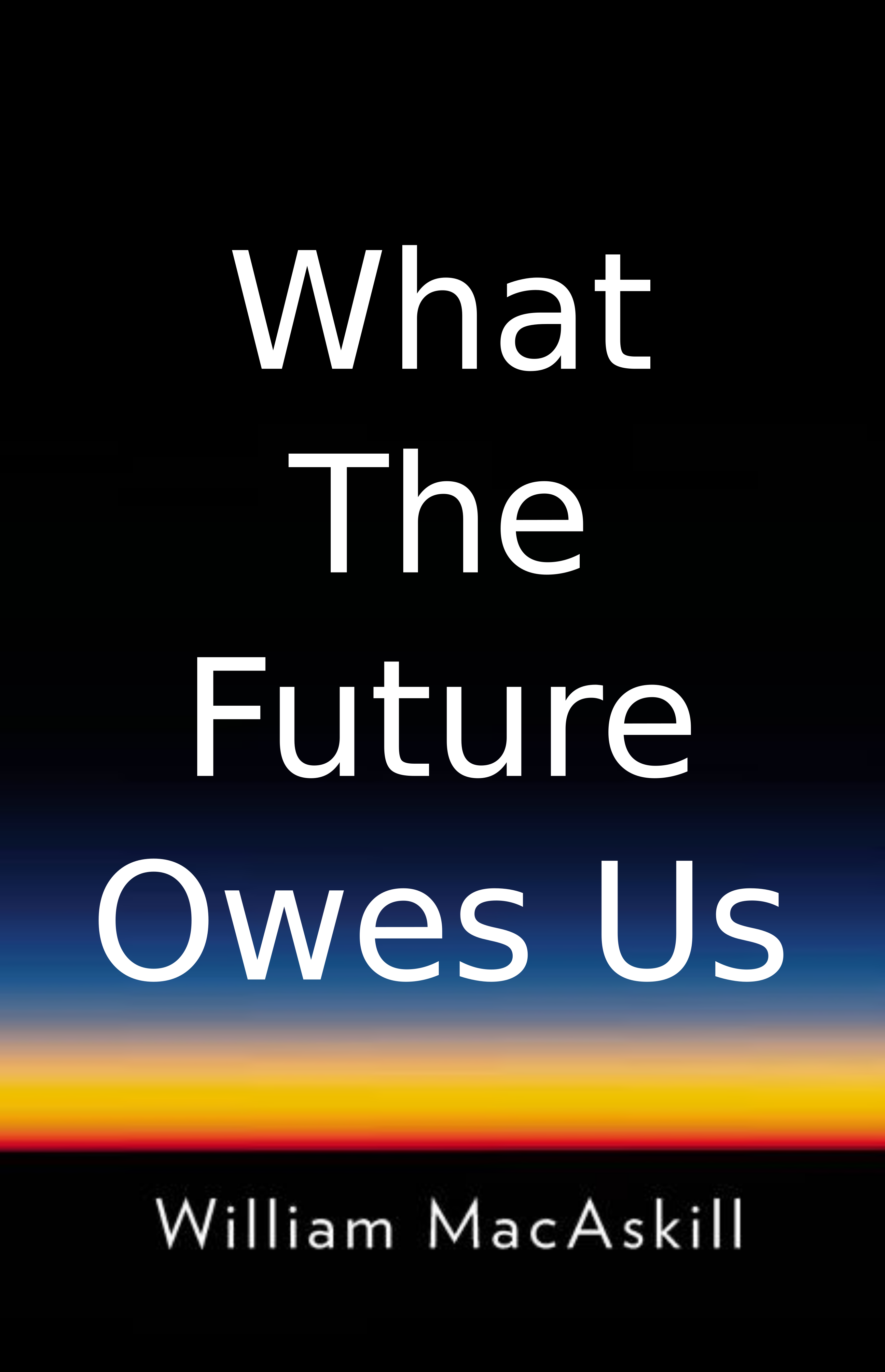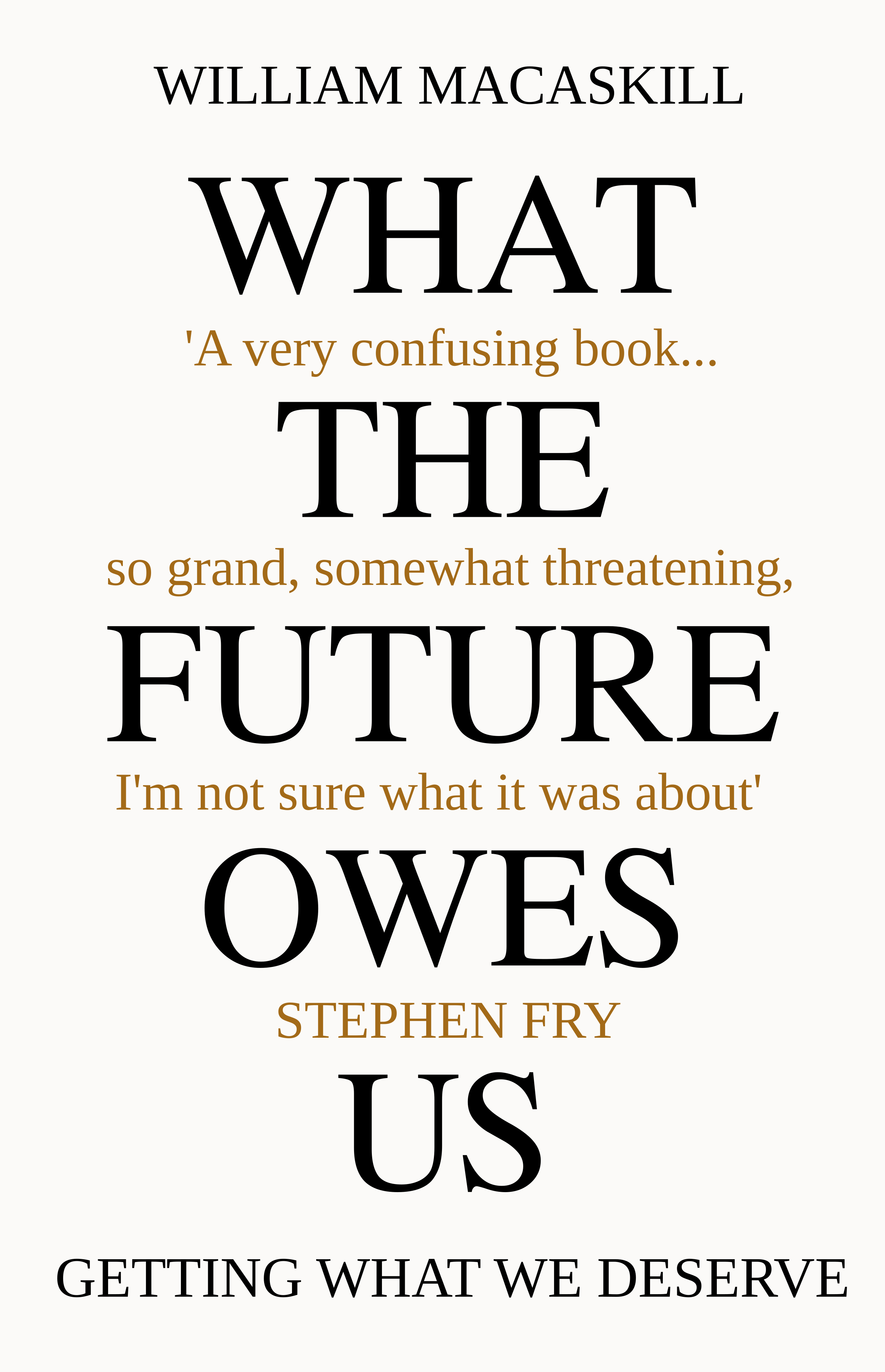I am excited to announce the sequel to the recently announced book What We Owe The Future. This new book will be called What The Future Owes Us, and will focus primarily on the common criticism “why should I do anything for the future if they won’t do anything for me?”
The first half of the book dives into ways in which the future can do things for us. Sometimes this is in straightforward ways, such as carrying forward our values and continuing our legacies. But it will be argued that there are much more impactful and direct ways the future can do things for us via acausal trade and via the future’s acausal influence over the past (our present). Due to the vast number of potential people in the future, we expect that they will be able to exert a large amount of acausal control over the past (the specifics of this argument will be fleshed out by the future author).
The second half of the book looks at ways we can ensure the future acts in the best interest of the past, just as we have acted in the best interests of them. We will investigate commitment devices, and novel metaphysics which may allow this to be possible. Ultimately it will be argued that we in the present can control the future, which can in turn have a positive impact on us today.
Hopefully, this book will bring more moral egoists to longtermism, because the best way to help oneself may be to help the future.
The book is not up for preorder yet, but we do have cover designs.



I love this, haha.
But, as with many things, J.S. Mill did this meme first!!!
In the Houses of Parliament on April 17th, 1866, he gave a speech arguing that we should keep coal in the ground (!!). As part of that speech, he said:
Huge H/T to Tom Moynihan for sending this to me back in December. Interestingly, in the 1860s there seems to have been a bit of a wave of longtermist thought among the utilitarians, though their empirical views about the amount of available coal were way off.
Let's fulfil Mill's wishes by buying some coal mines.
The future's ability to affect the past is truly a crucial consideration for those with high discount rates. You may doubt whether such acausal effects are possible, but in expectation, on e.g. an ultra-neartermist view, even a 10^-100 probability that it works is enough, since anything that happened 100 years ago is >>10^1000 times as important as today is, with an 80%/day discount rate.
Indeed, if we take the MEC approach to moral uncertainty, we can see that this possibility of ultra-neartermism + past influence will dominate our actions for any reasonable credences. Perhaps the future can contain 10^40 lives, but that pales in comparison to the >>10^1000 multiplier we can get by potentially influencing the past.
I pre-ordered this next year and fully agree with Stephen Fry. So far, future people seem more caught up in the theory. I’m disappointed that we’re not seeing a lot of direct work from them yet, but I have some hope this book will move the needle.
How much overlap is there between this book & Singer's forthcoming What We Owe The Past?
This is truly spectacular. By far the post of the day.
Building on pioneering work on 'retrocausality' by Huw Price in Time's Arrow and Archimedes Point: New Directions for the Physics of Time.
Wait, isn't this just a loan (or debt or promise)? Or, put another way, isn't every concept of "owe" implicitly one where the future owes us? If I lend $10 to Bob, future Bob owes me $10. 🤨
Hah!
I think it's worth discussing the straight answer to this, though: The future gives back simply by creating many of the things that I want to exist, which is a class of service that encompasses most of my values (I think).
This illuminates an interesting and surprising fact: Not all trade requires an exchange of physical objects, or even information. It is, in some cases, possible to evidence that something will occur, without ever entirely confirming it, which we will later find to be a foundational resolution in inter-universal moral trade schemes
This one is great